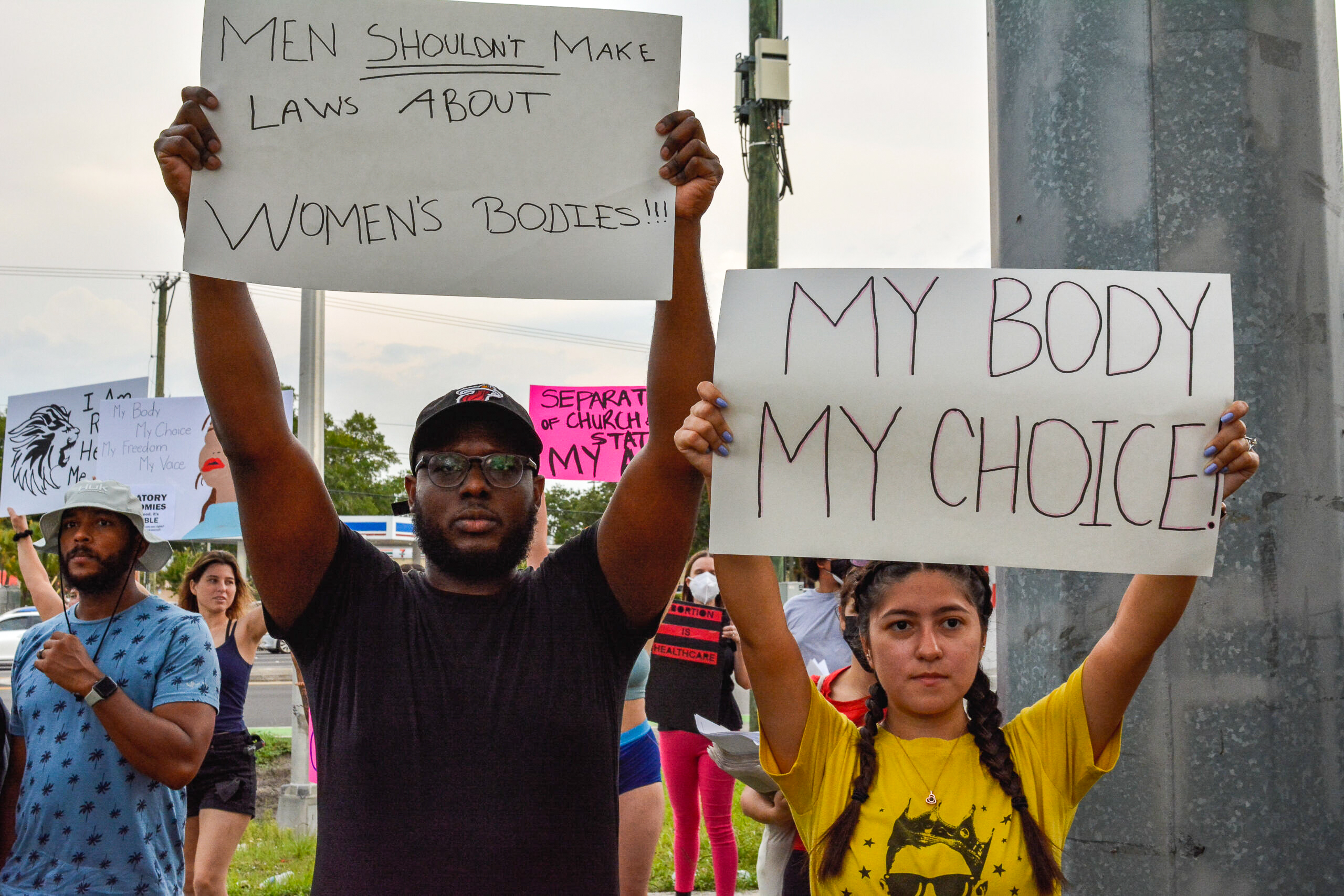OPINION: What a proposed 6-week abortion ban could mean for students, and why you should care

Abortion in Florida is already challenging to get, but access could get a lot worse. As students, we should all be paying attention.
On July 1, 2022, Gov. Ron DeSantis signed into law a 15-week abortion ban. This came shortly after Roe v. Wade was overturned. Banning abortions after 15 weeks was a major setback for reproductive rights and health, leaving the most vulnerable populations at a higher risk for pregnancy complications and mortality.
Now, the legislature is seriously considering a far more draconian ban – one that makes providing abortions after 6 weeks a crime, restricting abortion access even further. The proposal has received support and approval from Florida Republicans and the governor himself.
A 6-week abortion ban would be a near total one since most people don’t yet know they are pregnant by this time, with late pregnancy awareness being especially prevalent among younger, Hispanic and Black non-Hispanic women. By the time a person realizes their period is a week or two late, it would likely be too late to receive an abortion, or there would not be enough time to arrange for one.
The ban would be devastating for many Florida residents, including those who are currently in college or plan to attend college. University students are particularly affected by abortion bans because they face an increased risk of unintended pregnancy, while also experiencing more barriers to healthcare than the general population.
Enrollment in universities and colleges may be disrupted, especially for those who are a part of historically marginalized communities; people of color have historically faced more barriers to reproductive health services, as well as being targeted by law enforcement for pregnancy outcomes.
It is too early to tell just how significant the impact would be, but a survey of 1,000 current and prospective students shows hesitation to attend schools in states with restrictive abortion laws.
Students and faculty may also leave their college to seek one in a state that protects abortion access. This is already being reflected in interviews with prospective college students, such as one done by The Washington Post.
Graduation rates, especially among women and people who can give birth, are also likely to decline if the bill is passed. College is difficult enough without the added worry of a pregnancy, and students who are unable to access an abortion may be forced to drop out as a result. A survey conducted in Mississippi found that 38% of female community college students who have dropped out cited getting pregnant as their reason for discontinuing their education.
Forcing pregnancy while also providing limited resources for personal and academic success will likely result in a more worrying trend in Florida if the 6-week abortion ban is passed.
Aside from university and college enrollment, the overall health of students will decline, as well as social and economic wellness. Forced pregnancy impacts mental health outcomes, educational attainment and employment opportunities. As a whole, forced pregnancy is a bad public health policy – cruel and dangerous. Just the possibility of having to carry out an unintended pregnancy may be enough to affect the mental wellbeing of many students.
What we do with our bodies should not be up to politicians. As students, not only do we need to be paying attention to the laws unfolding in Florida, but we also need to be taking action against ones that actively restrict our rights. Contact your legislators today.
Kayla McDonald is a graduate assistant and a master’s of public health student at USF.







